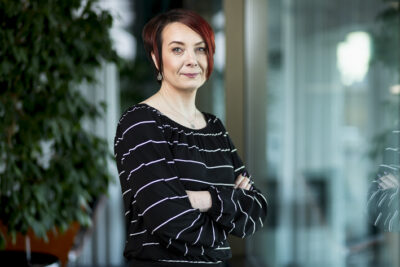The Skills Forum: Finding Solutions to Improve the Well-Being of Our Youth

Young people as part of corporate responsibility was the theme of the Chemical Industry Federation’s Skills Forum on Tuesday, October 1st.
This important topic has been discussed relatively little. The deterioration in youth well-being is a highly worrying issue. It has a ripple effect on businesses due to a shortage of skilled workers. Where will we find skilled future professionals when young people are increasingly unwell, and the age groups are shrinking?
According to the latest School Health Survey (2023) by the Finnish Institute for Health and Welfare (THL), a large number of children and young people are increasingly burdened by bullying, loneliness, anxiety, and fear of social situations. Some young people are doing very well, but at the same time, a portion of the youth is doing progressively worse. According to Allianssi’s “How Are the Youth Doing?” information package, around 10 percent of Finland’s youth are in the poorest condition. These young people face the most severe factors negatively impacting their well-being, including health issues, poverty, violence, illnesses in close family members, substance abuse, and poor living conditions. Meanwhile, according to the Junior Achievement Finland’s “Youth Future Report,” concerns about the burden of working life among young people continue to grow. The latest results show that only 53 percent of young people are looking forward to working life, while as many as 37 percent fear that it will be too stressful.
Sufficient skills, particularly in natural sciences, are also strongly linked to the climate crisis and environmental anxiety that worry young people. While concerns about our environment are growing, many positive changes are happening, and much of this is being led by skilled natural scientists in companies. However, are we doing enough to communicate about the innovations and successes that aim to save our environment? For example, greenhouse gas emissions in the EU have decreased by 31 percent over the past 30 years. In addition to sharing positive stories about working life, we must also talk about the responsibility efforts that concretely protect our environment, save our climate, and help reduce the climate anxiety experienced by young people.
What are we currently doing to support young people?
We are advocating to strengthen young people’s skills. We want everyone to have sufficient skills to succeed in their studies and later in working life. Specifically, we aim to invest in developing scientific and mathematical skills, providing high-quality secondary education, and ensuring effective continuing and retraining programs.
The summer jobs, internships, and thesis opportunities offered by companies also play a significant role in shaping young people’s confidence in the future. At the same time, we want to remind society of how important the wellbeing of young people is to us and how our entire future as a society depends on them. In our advocacy work, we also highlight the diversity of working life: we want to be an industry that employs the best talent regardless of background.
These themes were frequently raised by the participants of Tuesday’s Skills Forum panel discussion as they considered what companies and society can do to support young people’s wellbeing. Many young people feel immense pressure, and our current society increasingly demands self-direction. Many fear whether they will meet workplace expectations. On the other hand, the workplace can also be a place where community is created and experienced.
Ultimately, every company and individual can influence how young people perceive working life through their actions. Even something as simple as the words and tone used when talking about work and working life affects perceptions. The discussion highlighted the need to share more diverse career stories and examples of different paths into working life. The key is to find one’s strengths and experience success.




